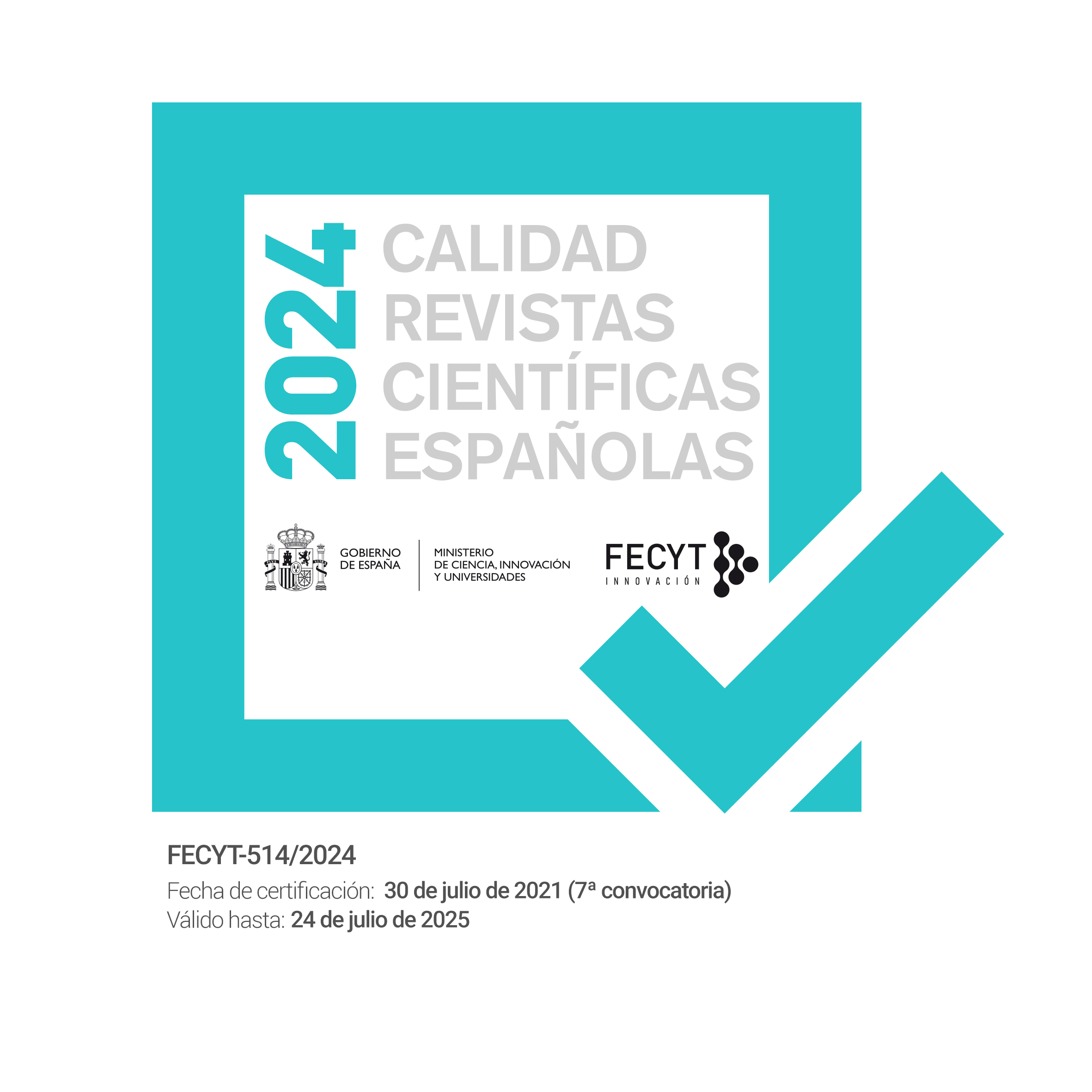MY YEAR OF REST AND RELAXATION IN A WORLD WITH NO REST NOR RELAXATION
NARRATIVE PROSTHESIS AND HYPERREALITY IN OTTESSA MOSHFEGH’S NOVEL
DOI:
https://doi.org/10.12795/REN.2022.i26.13Keywords:
disability studies, simulacra, postmodernity, poststructuralism, Ottessa MoshfeghAbstract
The representation of a form of disability in literature can be used not only as a way of distinguishing the character and setting the narration in motion but as a metaphor of social and individual collapse. Following this idea, I will focus on Ottessa Moshfegh’s My Year of Rest and Relaxation, a 2018 novel that narrates the experiences of a privileged woman in a context of growing aestheticism and its consequent loss of political meaning in the American society of the 90s. In it, I argue, the depression that she suffers from can be observed to work as the engine of the narration and the result of the emptiness derived from the current society of spectacle.
I use David T. Mitchell’s and Sharon L. Snyder’s Narrative Prosthesis to delve into the role that the depression the main character suffers from plays in the novel and how she follows the pattern traditionally found in disability narratives. I also use Jean Baudrillard’s analysis of the current state of simulacra to explain her disabled experience.
Downloads
References
American Psychiatric Association. Diagnostic and Statistical Manual of Mental Disorders (DSM-5®). American Psychiatric Pub, 2013.
Americans with Disabilities Act of 1990. Pub. L. 101-336. 26 July 1990. 104 Stat. 328.
BACON, Francis. Francis Bacon: A Selection of His Works. Edited by S. Warhaft, Macmillan, 1965.
BAUDRILLARD, Jean. Simulacra and Simulation, 1981. Translated by Sheila Glaser, Michigan UP, 1994.
---. The Illusion of The End, 1992. Translated by Chris Turner, Stanford UP, 1995.
---. The Spirit of Terrorism, 2002. Translated by Chris Turner, Verso, 2002.
BERNT, Camille. Into the Abyss: Self-Destruction as Feminist Resistance in Ottessa Moshfegh’s My Year of Rest and Relaxation and Han Kang’s The Vegetarian. 2021. Dominican University of California, Senior Thesis, https://scholar.dominican.edu/cgi/viewcontent.cgi?article=1004&context=literaturelanguages-senior-theses
BUTLER, Judith. “Rethinking Vulnerability and Resistance.” Vulnerability in Resistance, edited by Judith Butler, Zeynep Gambetti, Leticia Sabsay, Duke UP, 2016, pp. 12-27.
DASH, J. Michael. “The Madman at the Crossroads: Delirium and Dislocation in Caribbean Literature.” Profession, 2002, pp. 37–43.
DAVIS, Lennard J. Enforcing Normalcy: Disability, Deafness, and the Body. Verso, 1995.
DIRSCHAUER, Marlene. “Sleep as Action? World Alienation, Distance, and Loneliness in Ottessa Moshfegh’s My Year of Rest and Relaxation.” AmLit, 2022. Online. https://unipub.uni-graz.at/amlit/periodical/titleinfo/7652760
FLORIDI, Luciano. The Fourth Revolution: How the Infosphere is Reshaping Human Reality. Oxford UP, 2014.
FOUCAULT, Michel. The History of Sexuality, Vol. 1, An Introduction, Vintage Books, 1980.
GARLAND-THOMPSON, Rosemarie. Extraordinary Bodies: Figuring Physical Disability in American Literature and Culture. New York: Columbia UP, 1997.
GREENBERG, Jonathan. "Losing Track of Time." Daedalus, vol. 150, no. 1, 2020, pp. 188-203.
HOLLADAY, Drew. "Mental Disability and Social Value in Michelle Cliff’s Abeng." Literatures Of Madness: Disability Studies And Mental Health, edited by Elizabeth J. Donaldson, New York: Palgrave Macmillan, 2018, pp. 199-214.
IVANA, I.M. In Praise of Unlikeable Women: Exploring Unlikeability in "Postfemenist" Times in My Year of Rest and Relaxation and Fleabag. 2020, University of Utrecht, Master Thesis, https://dspace.library.uu.nl/handle/1874/398024
JAMESON, Fredric. Postmodernism, or, The Cultural Logic of Late Capitalism. Durham: Duke UP, 1989.
JONES, Nev, and Brown, Robyn. “The Absence of Psychiatric C/S/X Perspectives in Academic Discourse: Consequences and Implications.” Disability Studies Quarterly, vol. 33, no. 1, 2012.
KEEBLE, Arin. “The End of the 90s in Porochista Khakpour’s The Last Illusion, Rachel Kushner’s The Mars Room and Ottessa Moshfegh’s My Year of Rest and Relaxation.” Critique: Studies in Contemporary Fiction, 2022.
KUKKONEN, Karin. “Exploring Inner Perceptions: Interoception, Literature, And Mindfulness.” Journal of Consciousness Studies, vol. 26, no.11-12, 2019, pp. 107-132.
MACCANNELL, Dean. The Tourist: A New Theory of the Leisure Class. California UP, 2013.
MITCHELL, David T, and Snyder, Sharon L. The Body and Physical Difference: Discourses of Disability. Michigan UP, 1997.
---. Narrative Prosthesis. Disability and the Dependencies of Discourse, Michigan UP, 2000.
MOSHFEGH, Ottessa. My Year of Rest and Relaxation,Vintage, 2018.
NICO, Yara, Leonardi, Jan Luiz, and Zeggio, Larissa. Depression As a Cultural Phenomenon in Postmodern Society: An Analytical-Behavioral Essay of our Time, Springer Nature, 2020.
SCHWAB, Klaus. The Fourth Industrial Revolution, Crown Publishing, 2016.
WOLFRAME, PhebeAnn M. “Going Barefoot: Mad Affiliation, Identity Politics, and Eros.” Literatures of Madness: Disability Studies and Mental Health, edited by Elizabeth J. Donaldson, Palgrave Macmillan, 2018, pp. 31-49.
World Health Organization. Depression and Other Common Mental Disorders: Global Health Estimates,World Health Organization, 2017.















